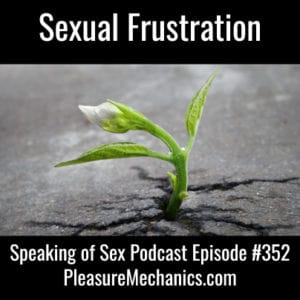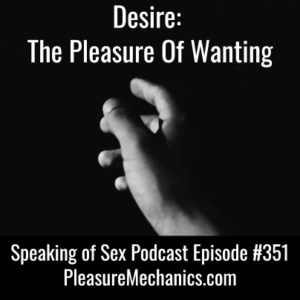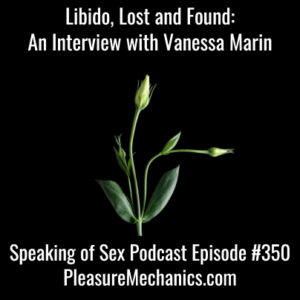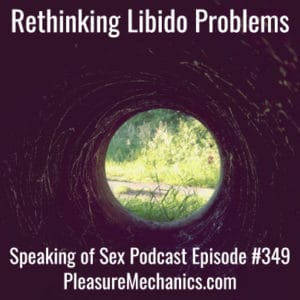Podcast: Play in new window | Download
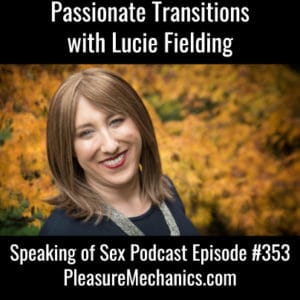
We are all in constant states of change, growth and transition – so how can we learn to embrace change with a spirit of curiosity and perhaps even passion?
On this episode, Lucie Fielding joins us to share her brilliant frameworks about coming into passionate relationship with our embodied sexual selves. Lucie joins us to generously share their ideas as they are being developed for the book Trans Sex: Clinical Approaches to Trans Sexualities and Erotic Embodiments – Update! The book is now available: Trans Sex by Lucie Fielding
Free Printable Zine from Meg-John Barker
Podcast Episodes About Gender, History of Queerness & Full Spectrum Sexuality
- Passionate Transitions with Lucie Fielding
- The Gender Galaxy
- In Graphic Detail: Interview with Meg-John Barker
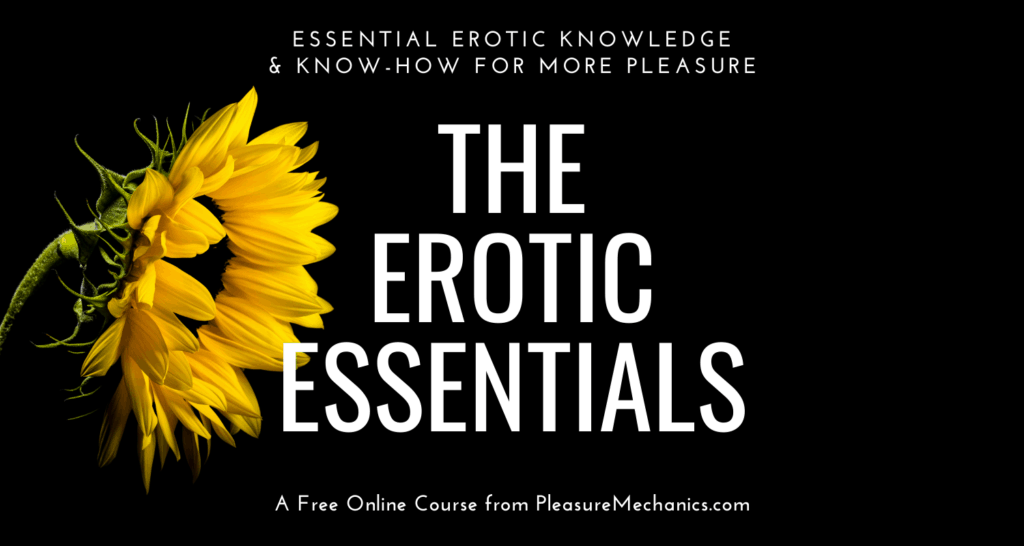
About Lucie Fielding
Lucie Fielding is a resident in counseling at Creating Change, PLLC. Lucie completed their MA in Counseling Psychology from Pacifica Graduate Institute in 2018. In addition to their counseling education they hold a PhD in French with a specialty in erotic literature.
About their work, Lucie writes: “My background in literature and history attunes me to the powerful ways that myth, image, metaphor, and cultural scripts shape and inform the narratives we carry with us as we move through the world as well as how these narratives can write themselves on our bodies.” Lucie identifies as a queer nonbinary femme, and uses she/they pronouns.
Resources About Gender
- Trans101, a lovely series to spend some time with to discover the basics of gender, transgender people and the range of trans experiences and identities
- The Gender Spectrum, a glossary of language used to talk about gender and gender identities
Transcript for Podcast Episode Passionate Transitions: Interview With Lucie Fielding
Podcast transcripts are generated with love by humans, and thus may not be 100% accurate. Time stamps are included so you can cross reference or jump to any point in the podcast episode above. THANKS to the members of our Pleasure Pod for helping make transcripts and the rest of our free offerings happen! If you love what we offer, find ways to show your love and dive deeper with us here: SHOW SOME LOVE
Chris Rose: 00:01 Welcome to Speaking of Sex with the Pleasure Mechanics. I’m Chris from pleasuremechanics.com, and on today’s episode I am joined by the fabulous Lucie Fielding to talk about change and becoming and transitions in all of our erotic lives, and how we can approach change with more curiosity and passion. I first met Lucie at the AASECT, The American Association of Sexuality Educators, Counselors, and Therapists, and when we met, it was very clear that we had met kindred spirits. She’s brilliant and wise and lovingly invites you into new perspectives on your erotic body and experience. So, I really hope you enjoy this conversation with Lucie.
Chris Rose: 00:52 I thought it was a great one to close out, to transition, as it were, out of our libido series. We have spent the past four episodes looking at libido and sex drive with fresh perspectives. How can we reevaluate some of the most fundamental assumptions about our sexualities that we have been taught from myth and disinformation, out of even like a harmful sex culture? How do we reevaluate what sexuality is, how it lives in our bodies, what this for is that moves through us and seems to move us in, sometimes, very unexpected directions in life? What is eroticism and sexuality?
Chris Rose: 01:42 I love that we, as a community, can go into these conversations and ask these really big questions together. I continue to get really amazing emails from you all, as you unpack these themes. Keep them coming, chris@pleasuremechanics.com, and if you want to support this show, and the work that we’re doing, and be part of our inner circle, and in closer dialogue with me and Charlotte, come on over to pleasuremechanics.com/love, pleasuremechanics.com/love, where you will find some options to throw us some love, support the show, and step into our inner circle of supporters.
Chris Rose: 02:25 All right. I am so excited to introduce you to Lucie Fielding. As I said, when I walked into their workshop session at AASECT, I was blown away by their wisdom and soulfulness. It turns out Lucie has been a listener of our podcast for a while, so a friendship was born. It was a really wonderful to meet and share our thoughts. This, I think, will be the first of many conversations we share with you. Let us know what you think, and how this applies to your life. I’m waiting to hear from you over at pleasuremechanics.com. All right. Here’s my conversation with Lucie Fielding. Cheers.
Chris Rose: 03:10 Lucie, welcome to Speaking of Sex.
Lucie Fielding: 03:13 Thank you, so much, for having me.
Chris Rose: 03:15 Can you, please, start us out by introducing yourself, and the work that you do?
Lucie Fielding: 03:19 My name is Lucie Fielding, and I am a non-binary femme. My pronouns are she, they. I am a resident in counseling, which basically means I’m a therapist under supervision, working towards licensure. I’m also a sex educator and a writer, and I’m currently working on a book entitled Trans-Sex Clinical Approaches to Trans-sexualities and Erotic Embodiments. That will come out in late 2020.
Chris Rose: 03:57 I’m already excited for part two, when we bring you back to talk about the book. Based on our workshop together, at AASECT, when I just was dazzled by your wisdom, I really want to set a very specific scope for this conversation and talk about this idea of transitions in all of our lives, change in all of our lives, and how we can come into a more passionate relationship with change and transitions in our erotic lives. So, that’s where we’re headed, today. Can you start by defining some of this language on your terms? What [crosstalk 00:04:38] by erotic embodiment?
Lucie Fielding: 04:41 Sure. Erotic embodiment. Embodiment… So the root verb is to embody, and there’s two senses to that. One is that corporeal sense, “I am in my body. I’m aware of… I have an internal sense and external sense of my body. My body in space, my viscera. Then, the second sense is the social and cultural sense, the fact that we embody things. We embody norms. It’s the idea that cultural scripts, narratives are constantly, and images, are constantly intersecting with our bodies, bombarding our bodies, forming our bodies in space. They have a lot to say about what our bodies are for, what they can do and what they can’t do, or what they should do, more properly, and what they shouldn’t do. It often comes with a moral aspect to it, or a normative aspect. So, embodiment is about, in some ways, the ways that our bodies are moving, not just as corporeal things of blood and guts and viscera and fluids, but also formed by, through, and in culture.
Chris Rose: 06:32 Mm-hmm (affirmative). I really appreciate this dual lens for embodiment, because we talk so often, on the show, about erotic embodiment, but we have to remember that that doesn’t happen in individual beds.
Lucie Fielding: 06:46 No.
Chris Rose: 06:47 It doesn’t happen in individual genitals. It happens in this social web of culture, and your writing really points to that so beautifully.
Lucie Fielding: 06:54 Thank you. Yeah, I really try to… I see both in my work as a therapist and in the book and in my teaching. I really want us to be cognizant of the fact that we don’t come in, simply as individuals with our subjective feels that so much of it is conditioned or in response to and conserved some troubling or, a term to talk about perhaps later, could use some mystifying.
Chris Rose: 07:38 How is your sense of your understanding of erotic embodiment been informed by this other term you talk a lot about, transition and change.
Lucie Fielding: 07:48 Yeah. The book, itself, is written for providers working with… And I mean providers very broadly. I mean mental health providers, medical providers, I mean body workers, I mean surrogate partners, I mean, pelvic floor therapists, the whole gamut. So, when I talk about… And the population I’m talking about is, of course, trans, non-binary, and gender non-conforming folks and how we, as providers, can better host conversations about sexual expression, erotic embodiment, for trans, non-binary, and gender non-conforming folks, but my sense is that these conceptual frameworks, in the book and in my teaching are really applicable to all bodies.
Lucie Fielding: 08:54 It’s just that my starting point… Instead of starting with cis heterosexual bodies, white able-bodied cis heterosexual bodies, I want to start with trans and non-binary and queer bodies, and start from there because so much… My observation has been that so much of the research, the great sexological research that we depend on and that we draw from, and many of the great sex education books that we love… I adore Emily Nagoski’s Come as You Are, or Laurie Mintz’ Becoming Cliterate or Girl Sex 101. They are all starting from this position of cis women’s bodies and cis women’s sexualities. That’s great, but what happens is that trans and non-binary folks have to often extrapolate from cis experiencing. So, I want to flip the script on that because I think that there’s a lot that trans and non-binary folks, and queer folks, generally, have to teach cishet folks about embodiment and erotic embodiment, specifically.
Lucie Fielding: 10:32 This notion of transition, to come back to that question… I’m sorry to wind back to it… is the sense that our bodies, that transition is not just for trans and non-binary folks. It’s not just about these very prescribed pounds of social transition and legal transition and medical transition, with all of the steps that go into that. Our bodies are constantly in transition. Our sexual bodies are constantly in transition. We are aging. Our hormones are constantly shifting. We’re acquiring illnesses. We are acquiring disabilities. We are recovering from illnesses. We are recovering from injuries, and all of that is a transition. It’s a passage. It’s a process that we are always engaging in, if we really think about, because stuff is happening to us in our lives and to our bodies, and it’s impacting the way that we are relating to one another and, particularly, relating to one another sexually and relating to our own bodies as sexual bodies.
Chris Rose: 12:04 When we think about how we relate to these transitions, these passages, these changes, it’s so clear that we often have a relationship of loss, of grieving, of yearning, of thinking of what we’re leaving behind, as we age or as we change, and we forget sometimes that change is the great vehicle of discovery, of excitement, of curiosity, and you invite us into this more balanced… I don’t want to say positive because I feel like you hold the whole spectrum of the emotional experience of change, but you remind us of the joy and excitement in change, as well.
Lucie Fielding: 12:51 Yeah. I hope so. At least I think we often put it in terms of change involves or implies gains and losses, and that’s, I think, once in binary thinking that I want to eschew whenever possible, but also I think we need to talk more about variation and difference, and that’s the framework from which I talk about change, that our bodies vary and that, yes, that passages do imply some grieving process because you are moving from one state to another, but it’s a constant thing. There are, instead of looking at nearly in terms of what is lost or what is gained, I want to think about, what is the difference? What opportunities open up that this change allows me to consider?
Chris Rose: 14:19 That’s such a more generous question.
Lucie Fielding: 14:21 Yeah.
Chris Rose: 14:23 What is the role of passion in this? You talk about quote “coming into passionate relationship with the embodied sexual self,” which is just a sentence I could read over and over again. This word, passion, talk to me about, because I tend to think of passion as overrated, kind of, this external lustiness we feel with another person. How do you think of passion?
Lucie Fielding: 14:45 When we talk about sexuality, we often talk about intimacy. We talk about sexual intimacy. What I want to talk about is, in some sense, two relational energies. There is intimacy, which is often about coziness and comfort and feelings of safety, and it feels yummy. It’s about knowing. Passion, for me, and this comes a lot from relational psychotherapists like [Stephen 00:15:26] Mitchell and folks like Esther Perel, who really talks about the intimacy passion energies.
Lucie Fielding: 15:35 Passion often marks the beginning of our relationships, and it’s an energy that is steeped in not knowing, in mystery, in fantasy, in, just like, raw desire, sometimes even lust. It’s from that period where we sincerely are gobsmacked by another person, by partners, and I think that, that’s really an exciting space to inhabit. The observation that folks like Esther Perel talks about is that, often, what happens in relationships is that, and I talk about it in terms of that pina colada song. What that tells is the story of, you’re with a partner, and he describes as, the partnership as a favorite song, but it’s a worn-out recording of that favorite song. The relationship has gotten stale, predictable, definable. You get into this illusion, and it is an illusion that you know the other person.
Lucie Fielding: 17:02 Do you know all there is to know about another person? That’s a trap, and the guy in Escape, of course, answers the personal ad and then shows up at the bar, O’Malley’s, and lo and behold, who should walk in and who wrote the original ad that he responded to, but his current partner? Then, he says, “I never knew.” That is the space that passion can create. It’s that place of, “Huh. That was an illusion that I knew everything about the other person.” In fact, we are infinitely expandable because we are always transitioning. We are always in the midst of change and variation.
Lucie Fielding: 18:08 What I do, in my work, is I take that interpersonal lens that Esther Perel talks about, that escape really highlights, and I make it intrapersonal. I’m talking about our relationship to our own bodies and how we get a little bit too cozy and comfortable with how our bodies work and how our bodies are supposed to be interacted with, and what they’re for. You’ve talked about this in previous episode, the episode on what you can do with soft penises, which just such a great episode, because it’s all about this, that we have this cultural script that says that the only thing penises are good for is being hard and penetrating, and they intersect with mouths or with anuses or vaginas, but that’s their function, and if they don’t interact with bodies in the particular way, then, they’re disordered or, God forbid, dysfunctional.
Lucie Fielding: 19:35 So, to come into passionate relationship is to deconstruct that script and say, “Huh, I don’t have to use a penis like that. I don’t even have to call it a penis. I don’t have to interact with it in particular ways.” A sex educator that I met at Philly Trans Wellness, a big conference for both community members and providers in Philadelphia every year, put on by the Mazzoni Center, there was a workshop for community on making love to a trans body. There was this really incredible discussion of swirling versus bobbing. We have this idea… This is in reference to oral sex. …that usually… and it’s very gendered …that bobbing is about blow jobs. You bob a penis. Then you swirl a vulva. That’s what you do when you’re engaging in oral sex with holders of a particular genital configuration, but what if you swirl with a penis? What does that do? A lot of… One thing that’s really important to place here is the idea that trans and non-binary folks, we have a complicated relationship to our bodies, a very nuanced relationship to our bodies.
Lucie Fielding: 21:30 Sometimes, we… and especially toward genitals. I know, for me, when I am having sex with a partner, it is really dysphoria, body dysphoria, gender dysphoria, comes up for me when I feel like my parts are being treated as what society might say that they are, might assign a particular gender to, or connect a particular gender to, and how I interact with them and want them to be interacted with. So, I call my genitals, my clit, and we have so many creative and fabulous ways to describe our parts. One participant yelled out, in this same workshop, that they referred to their… a trans masculine person referred to their vulva as their man cave, and I just loved that, just rethinking that.
Chris Rose: 22:56 In the trans community, we have no choice but to articulate our own realities, to come up with our own language, to define who we are again, and again, and again. So much of this is an invitation for everyone to be in this inquiry and self-naming process so that we can be more authentic and more present with one another and ourselves.
Lucie Fielding: 23:26 And with ourselves. Yeah.
Chris Rose: 23:28 Do you want to talk anything, more, about this turning the passionate gays inward. I feel like so many people have a sense of what that might mean, feels scary. It feel inaccessible. What happens if we turn our gays inward and what do we discover there? Do we give ourselves permission to know ourselves?
Lucie Fielding: 23:52 Oh, it is scary. Change is scary. What I would invite folks to consider, and I can talk a little bit to this, is to consider as my dear friend and colleague, Ray McDaniel, whose practice in Chicago, [Tactical 00:24:18] Audacity, is amazing, they and I were talking about my work in the book. They introduced this lovely distinction between feeling safe and being safe and that, so often, we are safe, but we don’t feel safe. So, part of it is making… Part of this moves ability to lean into the fear that attends this process of coming into passionate relationship, because it is the unknown. You don’t know what you’re going to find.
Lucie Fielding: 24:59 There’s something really exciting about that, but there’s something really scary about that, and it’s important to acknowledge that. The first step is getting to a place where you are, in fact, safe. You are being safe, and you may not feel safe, but it’s about making an accurate assessment of your safety. Part of that, from a therapeutic perspective, we talked about often, one of my favorite therapeutic metaphors, is the metaphor of the container.
Lucie Fielding: 25:40 We talk about that therapy is about creating a safety container in which sensations, images, feelings, thoughts, that might be too scary, too overwhelming to face alone or outside of that space, that the container provides that sense of containment that I feel bounded by this really ethically drawn space. I can go to certain places because I am safe, even if this is a little scary.
Chris Rose: 26:27 So, therapy might be one of those containers. I think we can work on creating that container in our friendships and in our love relationships.
Lucie Fielding: 26:35 Totally.
Chris Rose: 26:36 On the individual level, I think, some people use journaling or art practice or even movement practice to create those containers for yourself of, how do you just carve out a little bit of time to go inward and see what’s there, get to know yourself?
Lucie Fielding: 26:52 Yeah, and kink practices are modeled on the same kind of idea. I talk about expanding the container metaphor to think about bounded chaos. I think about therapy and kink sayings as very much within that framework, that, as long as there is that container you’ve negotiated, you know that somebody is going to recognize that if you are getting overwhelmed and that you need a safe word out, that, that’s going to be respected and, indeed, welcomed and not shamed, and you’re going to be thanked for articulating that need to move out of the sink space. With that knowledge, so much can happen within that, once you have that negotiated frame. That can happen within friendships. It can happen within romantic relationships and, as you know, it can happen just with ourselves and through intentional practices. Any kind of mindfulness practice is, in a sense, establishing that container.
Chris Rose: 28:25 What do you say to people who are afraid of the flames? We often use fire as this metaphor for passion. So often, I hear from people who feel like if they open themselves up to their eroticism, if they start actually articulating their passions, their desires, they’ll be overwhelmed, they’ll be consumed by it. How do we maintain a sense of self while also allowing ourselves to take the plunge?
Lucie Fielding: 28:57 I think that, that’s where the container comes in because you know that you’re going to be held back from going too far. So, I think it individually in terms of mindfulness practice. We talk about one of the prompts that I give for visualizations is this idea of, your mind may wander. That’s okay. That’s what minds do, so honor that and then try to see if you can bring your awareness back to the present moment, to your embodied awareness. That’s baked in. I can’t say that it is a totally safe move to come into passionate relationship. I think, if we felt safe, and we were safe, there would be no incentive for us to move towards something different to change. That just wouldn’t happen. We’d just keep doing what we’re doing, but we have to get to a place that almost…
Lucie Fielding: 30:30 A friend of mine who is a Health at Every Size nutritionist in D.C. talks about, with respect to disordered eating that, at some point, you have to decide that, and really understand that, the disordered eating patterns are not serving the goals that you have for yourself, that they’re, in fact, hindering you. Being in that place of, “Oh, I feel totally safe,” that may not be serving you, but that you need some of that distance that separatedness and that sense of not knowing, in order to move away from that desire to just stand pat.
Lucie Fielding: 31:30 A dear friend and sex therapist that I adore, Doug Braun-Harvey, talks about ambivalence is essential to the change process, that we need to have that sense of, “Oh, I don’t know if this is good or bad.” There are costs and benefits to all of this that I need to weigh. Hopefully, we get to the place where, ultimately, where we have been is not serving us as much as where we could go, even if that implies a sense of not knowing and charting a new course, remapping, revising, revisioning our relationship to our bodies.
Chris Rose: 32:26 I’m struck that, sometimes, these are incremental changes and small changes and, then, other times, they truly are swan dives into an unknown, and that sometimes the suffering is left behind, once you take the leap. I’m thinking, so much, about so many of my trans friends who, kind of, swirled in a stuckness for so long, and as soon as they articulated something for themselves, as soon as they named a change that was coming, whether that be, “I want to explore hormone therapy,” or “I’m changing a pronoun,” or, “I’m changing a name,” or any big step into their transition could feel, both, like a liberation and the first step into a gauntlet.
Lucie Fielding: 33:16 Yeah.
Chris Rose: 33:18 I think we need to remember that, with erotic change, that it’s like those feelings will co-exist. There will be excitation and terror, freedom and fear, the exciting of running forward and wanting to be held back at the same time, and to feel those feelings in you, at the same time and have them both be okay, is one of the skills, here, to develop.
Lucie Fielding: 33:39 Yeah. There’s a great Hélène Cixous quote [inaudible 00:33:44]. She’s a novelist and critical theorist. She talks in her book, The Book of Promethea… It’s, I think, the beginning of the book. “Once one is in the fire, one is bathed in sweetness. Here I am, in it. Once one is in the fire, one is bathed is sweetness.” It seems scary, like, “Why the heck would I want to jump into the fire?”
Lucie Fielding: 34:21 I’m not saying you jump into actual fires. Please do not, but it can feel that way, that we’re going to be burned by this, that it feels unsafe. It’s not what one is supposed to do, but that place of, “Here I am, in it.” I think about, to talk about my own transition because I’m much more comfortable, I think, talking about myself than I am talking about my clients, at this point, and their stories, because I’d have to do too much amalgamating of their stories to anonymize it.
Lucie Fielding: 35:16 I think about the ways that I was having sex prior to coming into relationship with my embodied sexual self, coming into a passionate relationship, it felt good, but where I am now is fricking amazing, multiple orgasms, full-body orgasms, and I’m not saying that… Your mileage may vary. I’ve made particular choices with my life, so I don’t want to name my experience and say, “Everyone will do this, will feel this way,” but I just know, and I know what it is… Going back to… You mentioned the word swirl just a few seconds ago, so it brought me back to swirling.
Lucie Fielding: 36:19 The distinction between when somebody bobs and when somebody swirls my clit, when somebody interacts with my clit as a clit, instead of as a penis, I can feel it and it’s amazing. It’s not that I didn’t feel great when somebody would bob, but it’s that swirling just feels yummy, and it feels like I’m deeply, deeply seen in my body and in myself, and I’m being affirmed, and I’m being held, and then I can go to places with my pleasure and in my pleasure, both with myself and in relationship to my partners, and experience forms of transcendence that I really couldn’t before, when I was so stuck in my head. It was like, “This is okay.”
Chris Rose: 37:28 Yeah, I really want to draw that out for a second because we can just look at the friction of the stimulation and leads to full-body orgasms, but that is not the story here. The story is your entire process over many years of coming into relationship with yourself, honoring your truths, revealing yourself, choosing a partner who will see you and hold you fully, like holding a certain standard for yourself, and that’s part of what Audrey Lorde talks about with the Erotic, raise the bar for what we expect in these meetings with one another.
Lucie Fielding: 38:06 And with ourselves.
Chris Rose: 38:07 Yes.
Lucie Fielding: 38:08 And our meetings… Solo sex is one of the starting places for this, and I can’t emphasize that enough. It’s like… We say that it’s hard to tell people what we like unless we know what we like. So, like playing around and figuring out what toys work and, what do you want to call your parts? What feels good? What kinds of movements feel good? What kinds of frictions feel good? Start with yourself and maybe genitals aren’t involved at all for you, and that is totally cool, and you can have mind blowing sex without ever engaging the genitals. So, I also want to make space for that.
Chris Rose: 39:06 Truth. So true. But you must engage the mind.
Lucie Fielding: 39:11 Yeah, and the mind as part of the body, not just this separate… We talk about the dualism, which is another piece of binary thinking. I talk about the embodied psyche that the mind is seated within the body. You can’t distinguish one from the other.
Chris Rose: 39:36 And we talk about this as a super power, because when you fantasize and wake up the mind, you are waking up the body, and you will feel the thrum inside, and this is the perfect chance to explore, through fantasy, what your body is viscerally responding to.
Lucie Fielding: 39:55 So much, yes.
Chris Rose: 39:57 Lucie, thank you, so much for stimulating our minds, today. I’m sure there’s more to come. Where can people find you online to get more of this delicious stimulation?
Lucie Fielding: 40:07 Sure. I have a website at luciefielding… Lucie spelled with an I-E., luciefielding.com, and also you can find me on Facebook. Again, I have a professional Instagram feed, @luciefielding.
Chris Rose: 40:30 Mm-hmm (affirmative), and we will link that all up, in the show notes page. Lucie, thank you, so much, for your time [inaudible 00:40:35] today.
Lucie Fielding: 40:36 God. Thank you. It is such pleasure talking to you. I love the pod, and it is just… It’s an honor, and a privilege to talk to you and start to share my work with your listeners. So, thank you.
Chris Rose: 40:52 All right. I hope you’ve enjoyed that conversation with Lucie. You might want to listen to it again to let these ideas sink in a little deeper. If you have any questions about this episode or anything you hear on the podcast, come on over to pleasuremechanics.com. We’d love to hear from you, and if you want to show us your love and support this show and the work we do in the world, come on over to pleasuremechanics.com/love, where you will find ways to support our work and step in, to our inner circle of supporters.
Chris Rose: 41:28 Thank you, so much, to all of our patrons and supporters, and members of our online courses. We love you and love supporting you in your erotic transformations. It is an honor to serve you, and we hope to work with more podcast listeners in these intimate ways, in the coming years. We will be back with you next week with another full episode of Speaking of Sex with the Pleasure Mechanics. I’m Chris, from pleasuremechanics.com, wishing you a lifetime of pleasure. Cheers.
